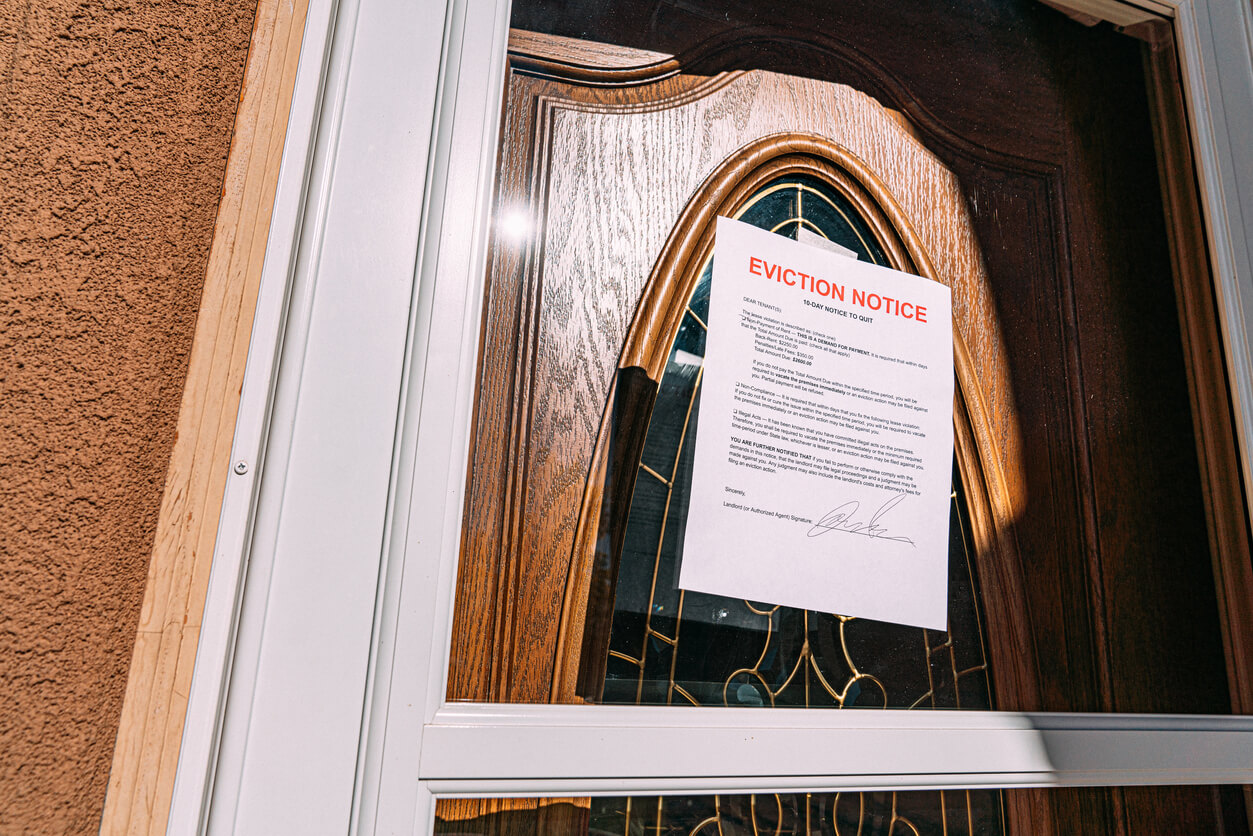Eviction is a crucial, yet complex aspect of real estate law. For landlords in Rhode Island, understanding the eviction process is essential for effective property management. This guide, presented by PALUMBO LAW, aims to demystify the eviction process in Rhode Island, offering clarity and legal insights to landlords and tenants alike.
Understanding Rhode Island Eviction Laws
Rhode Island’s unique landlord-tenant laws form the backbone of the eviction process. These regulations detail legal grounds for eviction, such as non-payment of rent or lease violations, and specify notice requirements and tenant protections. Understanding these nuances is critical for any real estate attorney or individual involved in landlord-tenant law.
Initiating the Eviction Process
The eviction process in Rhode Island begins with establishing a valid reason for eviction, followed by adhering to strict notice requirements and then moving toward court procedures. It’s a structured process where each step must be meticulously followed to ensure legal compliance and fairness.
Grounds for Eviction
Common reasons for eviction in Rhode Island include non-payment of rent, lease term violations, and the end of a lease term. Each ground necessitates a different approach and understanding by real estate attorneys.
Notice Requirements
Rhode Island law requires landlords to provide written notice to tenants before eviction. The format and timeline of these notices vary based on the eviction grounds.
Court Procedures
Initiating court proceedings involves filing specific documents and adhering to legal protocols. Real estate attorneys play a pivotal role in navigating these requirements.
The initial stages of the eviction process are critical and require careful attention to legal details. Whether it’s establishing grounds for eviction, meeting notice requirements, or initiating court procedures, each step plays a vital role in the overarching process. Engaging knowledgeable real estate attorneys at this stage can significantly streamline and ensure the legality of the process.
Court Proceedings
Navigating through court proceedings is a crucial phase in the eviction process. This stage involves detailed legal actions starting from filing a complaint to the tenant’s response. Each step requires precision and legal expertise, often necessitating the involvement of skilled real estate attorneys.
Filing a Complaint
The complaint details the eviction case and must include necessary documentation. This step is often handled by real estate attorneys.
Serving Notice
Legal service methods must be followed to notify tenants. Timelines for notice delivery are crucial in this phase.
Tenant’s Response
Tenants may contest the eviction or negotiate a settlement. The choice of action can significantly impact the eviction process.
As this phase unfolds, it becomes evident that the court proceedings are not just about legal formalities, but also about strategic decision-making. From ensuring that the complaint is meticulously drafted to anticipating and preparing for the tenant’s response, each action can influence the outcome of the eviction process. The role of real estate attorneys here is indispensable, as they provide the necessary legal acumen and guidance to navigate this complex terrain.
Timeline, Possession, and Removal in the Eviction Process
The eviction process in Rhode Island, from the initial notice to the final stage of possession and removal, involves a timeline influenced by several factors. Understanding this timeline, along with the subsequent steps after a court’s eviction order, is crucial for both landlords and tenants.
Timeline of the Eviction Process
The duration from issuing the eviction notice to the final court judgment can vary significantly. This timeline is influenced by factors such as the tenant’s response time, court schedules, and the overall complexity of the case. Each of these elements can either expedite or prolong the process.
Possession and Removal
Following a court-ordered eviction, the next steps involve issuing a writ of possession and potentially involving law enforcement. This phase is critical for ensuring that the eviction is carried out legally and efficiently. Tenants are responsible for their belongings and must adhere to specific timelines for their retrieval and arrange storage options if necessary.
Together, these phases represent the culmination of the eviction process in Rhode Island. From the initial notice to the final removal, each step needs to be executed under state laws and regulations. This comprehensive understanding is vital for landlords to manage their properties effectively and for tenants to be aware of their rights and responsibilities during the eviction process.
Legal Considerations for Landlords
Evicting a tenant involves certain costs and potential legal challenges. Landlords must be aware of these and understand the importance of seeking legal counsel from experienced real estate attorneys. Adhering to Rhode Island eviction laws is paramount for a smooth eviction process. PALUMBO LAW encourages landlords and tenants to seek legal advice to navigate this complex area of real estate law effectively. For legal guidance on landlord-tenant law and the eviction process in Rhode Island, contact PALUMBO LAW for an initial consultation.


